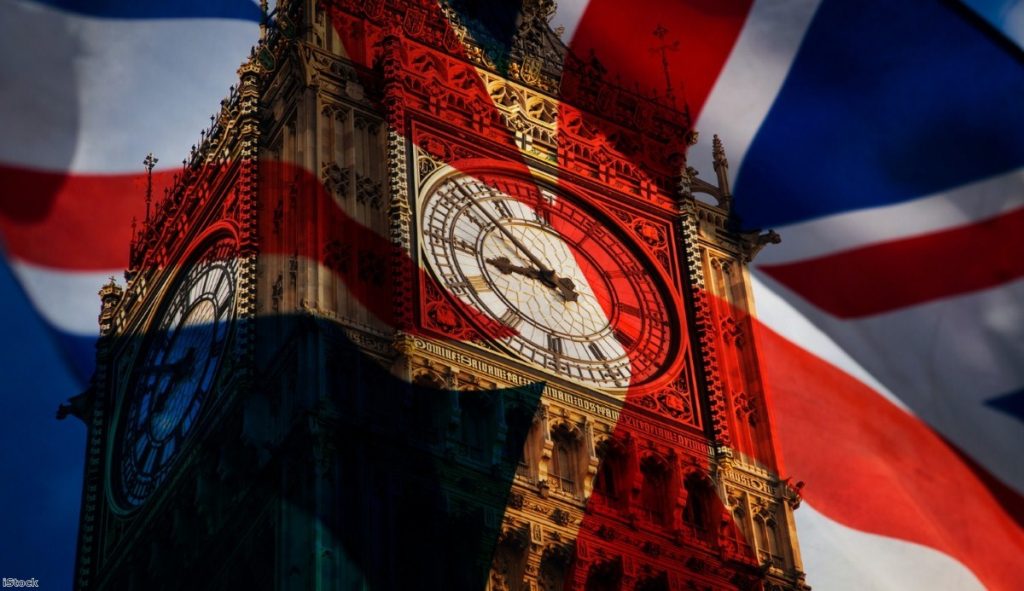By Eloise Todd
The week ahead promises to be the biggest yet in Brexit politics. Following Theresa May's rollercoaster few days last week, the prime minister will be hoping for a smooth run-up to the European Council, where leaders will be expected to agree formally to kick off the next phase of Brexit negotiations – but the fudge of last week means that all eyes need to be on Westminster for the most important stage in parliament's ability to scrutinise Brexit.
Dominic Grieve's amendment to secure a meaningful vote on the terms of the Brexit deal is vital, whatever political Brexit stripe you are. It will be voted on 13 December, on the eve of the Summit and, whatever verbal assurances are given by the government, democratically minded MPs from across the Brexit divide – and indeed the party political one – must stand up for democracy and vote for parliament to have the strongest possible final say on the deal. There are three reasons why this is especially important.
Firstly, 18 months after the referendum, there is no plan for what Brexit will look like. The Northern Ireland deal, hashed out between May's humiliating climb-down on Monday lunchtime and her all-nighter before Friday's Brussels breakfast, seems to have done more to bring about mass confusion among those supporting hard Brexit, soft Brexit and no Brexit at all. The deal promises no hard border between Northern Ireland and Ireland – and equally promises to maintain the integrity of the United Kingdom.
Some language on 'alignment' with Single Market and Customs Union rules had many commentators hailing the advent of Soft Brexit by default. Others took the 'possible future divergence' touted by Michael Gove to mean that a harder Brexit might be reawakened further down the track, while several even saw this to mean one of the hardest Brexiters of all was suggesting a referendum on the deal may be on the cards. We know that a key meeting of the Brexit war room of the Cabinet will take place the week before Christmas. It will finally be time to start to hash out whether the UK is pursuing the Extreme Brexit touted by the government so far, the Single Market and Customs Union route seemingly opened up by the Northern Ireland deal, or, more likely, whether the UK will be careering around the Brexit terrain between all possible options like an out-of-control shopping trolley. A meaningful vote will give parliamentarians a chance to vote on an emerging deal, not the Brexit mess served up in recent weeks.

Secondly, a proper vote in parliament on all the options available to the country could provide a useful national reality check that is much needed. That the biggest leap forward in the Brexit negotiations was created by an emergency tactical manoeuvre by May responding to the DUP shows the negotiations follow the formula of 'Brexit by cock-up', with little regard to what is best for the country as a whole.
The political pressure on both the EU negotiators and the UK government to move to phase 2 helped get us to this spot, but the inconsistencies in the Brexit negotiations will only begin to be more exposed from here on in. At some point both sides will need to fess up to the British public that the artful use of language ensconced in the Phase 1 agreement will need to be defined. Right now the key question is, if the border of the future EU is not between Northern Ireland and Ireland nor in the Irish Sea, where on earth is it? Many more such questions will need to be answered during the course of phase 2.
Thirdly, the British parliament must approve or reject the UK's deal within the negotiating time frame, currently set to expire on 29 March 2019. Without a meaningful vote embedded in parliament on the emerging deal while we are still negotiating, there is a risk that the May government will wish us to actually leave the EU before giving Parliament any say at all. This, of course, would be a nonsense and would ride roughshod over parliamentary sovereignty – neutering our parliament of any voice until the UK had already decided to leave. It is therefore vital that a truly meaningful vote should be held within the time frame of the article 50 negotiations and not be left to verbal assurances – not least because there is no guarantee who will be leading the Conservative party by next autumn, nor indeed where the balance of power might be in any future government or hung parliament.
For this, the biggest week in Brexit politics, the one thing we could all agree on is to put power back in the hands of parliament for a meaningful vote, so we truly take back control of our Brexit destiny, leave all options on the table, and most importantly avoid Brexit by cock-up.
Eloise Todd is the CEO of Best for Britain
The opinions in politics.co.uk's Comment and Analysis section are those of the author and are no reflection of the views of the website or its owners.





-01.png)